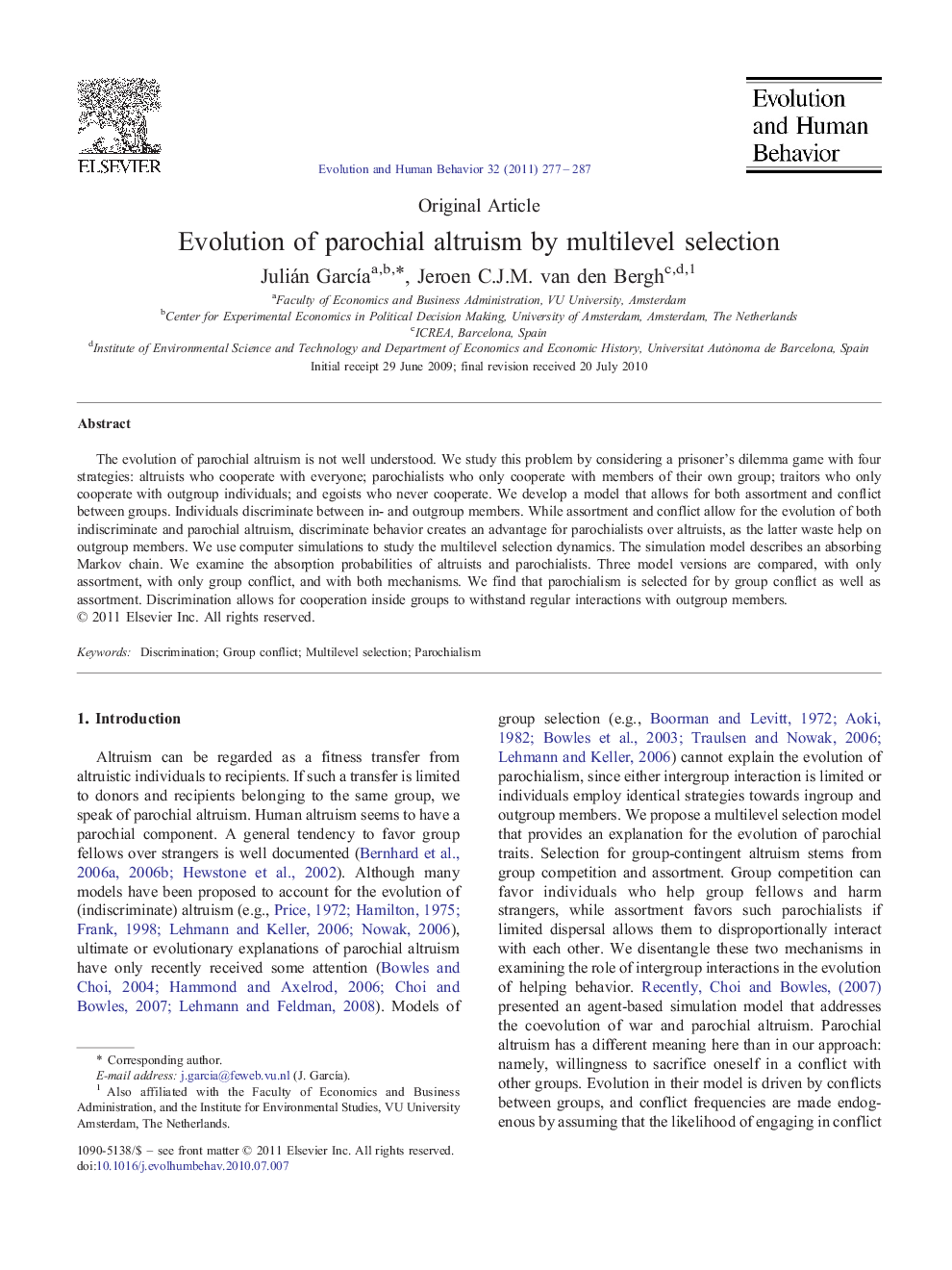| Article ID | Journal | Published Year | Pages | File Type |
|---|---|---|---|---|
| 943317 | Evolution and Human Behavior | 2011 | 11 Pages |
The evolution of parochial altruism is not well understood. We study this problem by considering a prisoner's dilemma game with four strategies: altruists who cooperate with everyone; parochialists who only cooperate with members of their own group; traitors who only cooperate with outgroup individuals; and egoists who never cooperate. We develop a model that allows for both assortment and conflict between groups. Individuals discriminate between in- and outgroup members. While assortment and conflict allow for the evolution of both indiscriminate and parochial altruism, discriminate behavior creates an advantage for parochialists over altruists, as the latter waste help on outgroup members. We use computer simulations to study the multilevel selection dynamics. The simulation model describes an absorbing Markov chain. We examine the absorption probabilities of altruists and parochialists. Three model versions are compared, with only assortment, with only group conflict, and with both mechanisms. We find that parochialism is selected for by group conflict as well as assortment. Discrimination allows for cooperation inside groups to withstand regular interactions with outgroup members.
